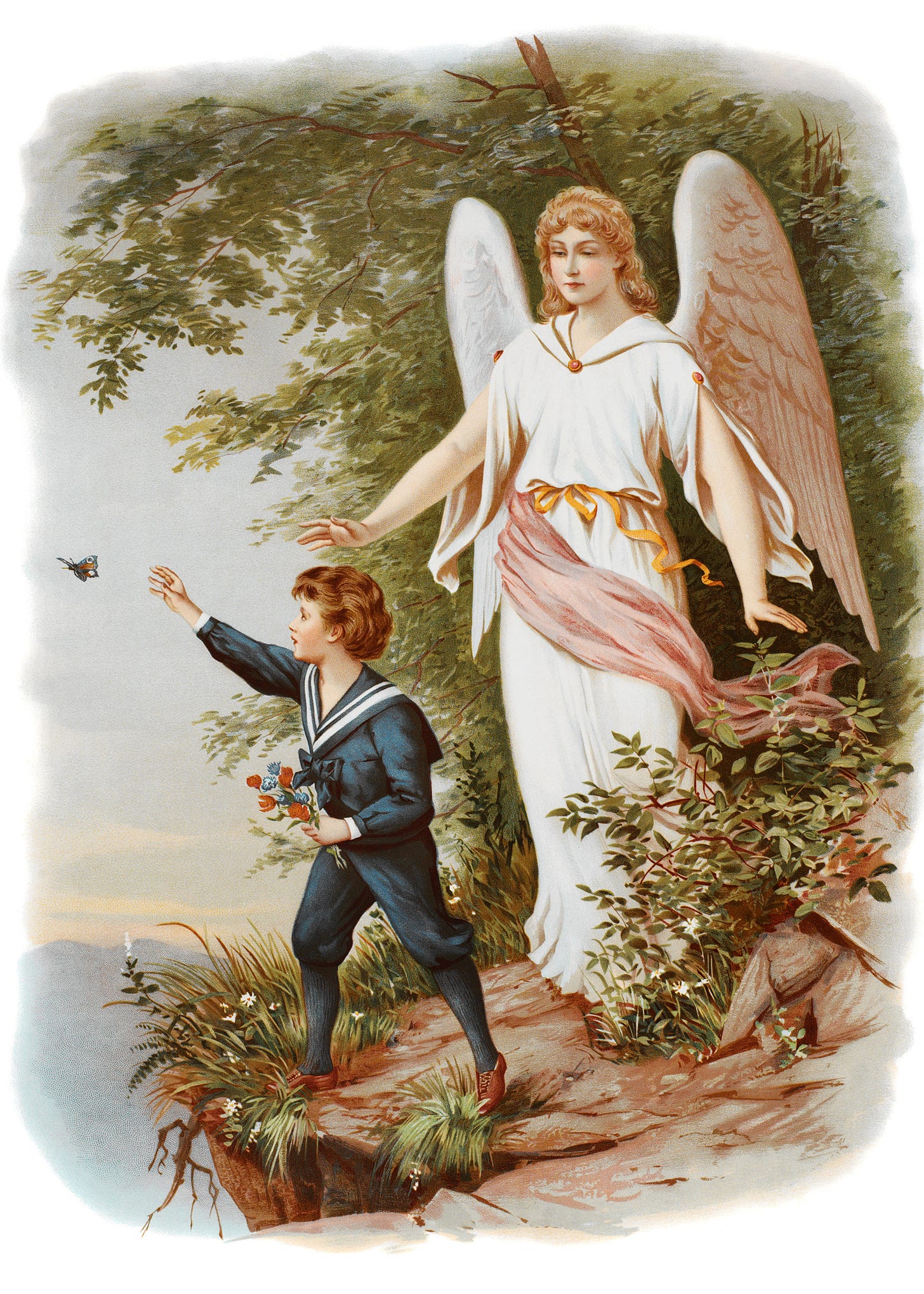One of the first prayers many cradle Catholics are taught is directed to their guardian angels: “Angel of God, my guardian dear, to whom God’s love commits me here. Ever this day be at my side, to light, to guard, to rule, to guide. Amen.”
But while Scripture frequently mentions angels assisting mankind, it do…

